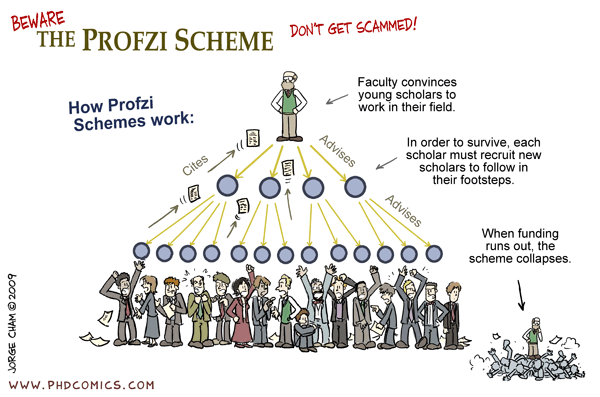http://www.nytimes.com/2012/04/17/s...nal-retractions-prompts-calls-for-reform.html
Don't know if anyone else's department has been buzzing with discussion of this, or has seen discussion on several listservs, but thought I'd get a discussion going here. Think I've posted related threads in the past, but we've had an influx of new members recently so thought I'd see what people had to say.
To me it is 1) Not surprising given current incentive structures and 2) Not anything I haven't been complaining about since my first year of grad school
That said, what we do about it? We're the next generation, how do we shift the system to prevent such injustices, and help stamp out the "business" mindset that seems to be poisoning the scientific method? Given how competitive it is to get grants, its easy to see how things like this happen...yet we clearly can't just fund everything. We can change how we evaluate things, and I've long argued that even a detailed methods section in most journals will provide you with nowhere NEAR enough information to replicate the study unless it was incredibly simplistic. My personal view is that even if you start with the same dataset, it would not be uncommon for different people to arrive at different answers.
Don't know if anyone else's department has been buzzing with discussion of this, or has seen discussion on several listservs, but thought I'd get a discussion going here. Think I've posted related threads in the past, but we've had an influx of new members recently so thought I'd see what people had to say.
To me it is 1) Not surprising given current incentive structures and 2) Not anything I haven't been complaining about since my first year of grad school
That said, what we do about it? We're the next generation, how do we shift the system to prevent such injustices, and help stamp out the "business" mindset that seems to be poisoning the scientific method? Given how competitive it is to get grants, its easy to see how things like this happen...yet we clearly can't just fund everything. We can change how we evaluate things, and I've long argued that even a detailed methods section in most journals will provide you with nowhere NEAR enough information to replicate the study unless it was incredibly simplistic. My personal view is that even if you start with the same dataset, it would not be uncommon for different people to arrive at different answers.

